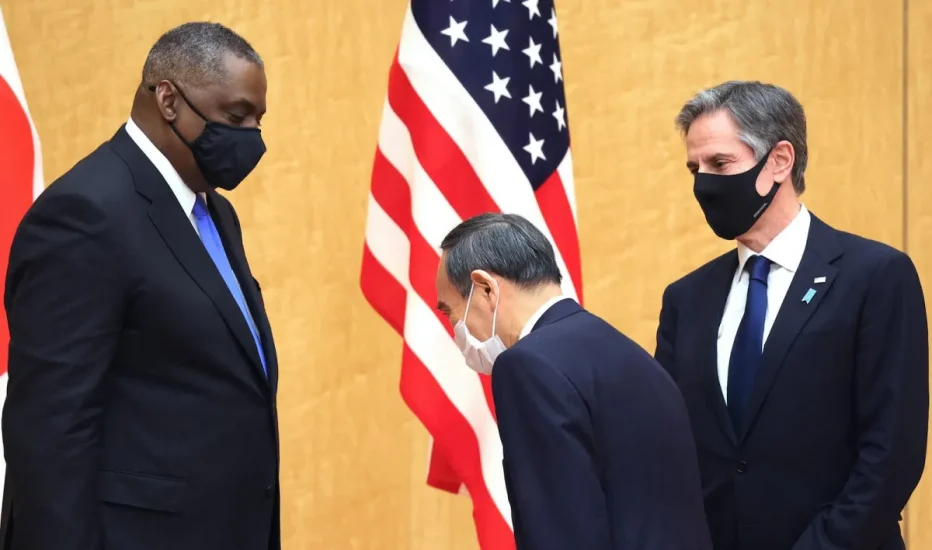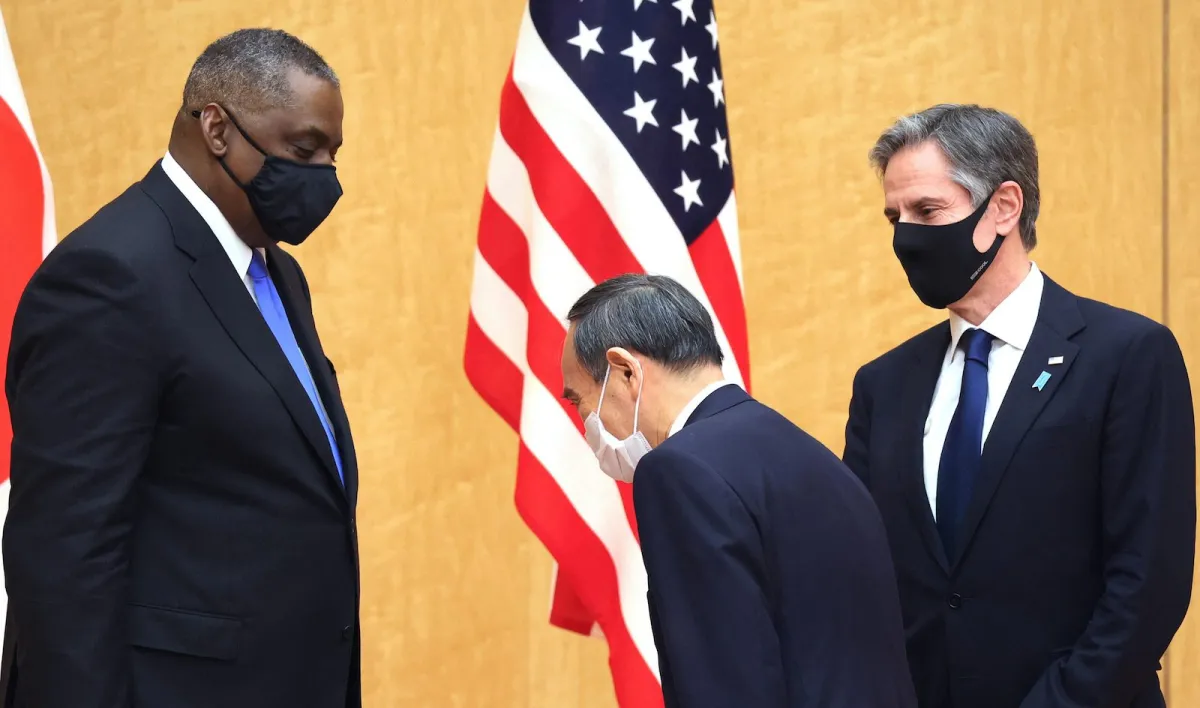BY: Pooya Mirzaei

PEJOURNAL – In their political culture, especially after the defeat and surrender of the First and Second World Wars, the Japanese did not seek security by military means alone; Considering political militarism in cooperation with the United States; And because of the historical consequences of the two world wars; Despite US nuclear and non-nuclear guarantees, Tokyo is pursuing a national security strategy through other means, such as gaining the trust of other Asian powers, and through economic aid, trade and diplomacy; And in this area, it has made significant achievements. Public opinion in the region also indicates that Japan, as the most reliable power in the region, also enjoys considerable soft power, which can also be interpreted in the form of economic militarism.
Germany and Japan have been some of the most important US trading partners in recent decades. German-American relations have cooled in recent years with some political tensions over tariffs and the rolling of Stream 2, while Japan has forged friendly relations with Trump with its own prudence and accountability. Tokyo has quietly taken the lead in defending US interests in the vast and turbulent Indo-Pacific area over the past ten years, and especially during the four years of Trump’s tumultuous rule, and Egypt continues to play that role.
Japan was also very happy with Joe Biden’s arrival at the White House, and in the new era it is undoubtedly the main focus of US security policy in Asia. One month after Biden’s presence in the White House, the agreement to host US troops on Japanese soil was extended, and a month later Biden’s new Secretary of Defense made his first official visit to Tokyo. In return, Biden hosted Japanese Prime Minister Yoshihide Suga at the White House as the first foreign guest in Washington.
After two decades of political passivity in adopting US economic and security policies, Japan has returned to its long-standing and active political role in East Asia, and through it has been able to deepen and develop relations with neighbors and countries that also have warm relations with the United States. At a time when Europe and the Pacific were feeling threatened by China, China, the North Korean nuclear threat, and the Corona pandemic, Japan has shown that it’s a partner for a peaceful partnership in the region. It is safe for the United States and is determined to further engage with the United States, to fulfill its role in long-term cooperation with traditional regional allies, and in turn to help the United States, led by Joe Biden, play a an active role in East Asian basin repairing Washington’s damaged role, returning the United States to its former position in the region.
The Japanese are more concerned than any other country about China’s growing power in its neighborhood, as Japan is the first victim of a possible military conflict between China and the United States. Because of its geo-economic advantages and critical dependence on the export economy and advanced technologies, Tokyo cannot tolerate living in China’s neighborhood with the same economic characteristics. Tokyo therefore intends to define and establish a government economic mechanism in strategic partnerships with the United States that can safeguard common high-tech economic ties against China’s industrial espionage. Only through Japan can it limit China’s economic rise in the grip of planned restrictions, pressures, and sanctions.
Japan’s political efforts for a more active US presence in the Pacific are due to growing concerns around China’s economic power and North Korea’s nuclear capacity. China’s power and North Korea’s repeated threats have brought Tokyo and Washington closer together to the point of concern for the United States and Japan. Now the focus of cooperation in relations between Japan and the United States is competition and rivalry (militancy) with China. The two countries are working hard to redefine “economic security” in Asia; To work together to protect the vital product chain, intellectual property rights, and highly sensitive technologies so that China can no longer easily access advanced technologies through industrial espionage.
In March 2021, at the informal meeting of the Quad Group of the United States, Australia, India and Japan, which was initiated by Japan after a long hiatus, the challenge with China and the need to form a working group to protect sensitive technologies and the whole issue was discussed. “Economic and technological security” was examined with the aim of finding an executive solution.
In order to standardize and protect the flow of digital trade and commerce in the region and beyond, Japan intends to play a pioneering and centralized role. Revival of the Comprehensive and Progressive Agreement for Trans-Pacific Partnership (CPTPP), which was revised and revised at the initiative of Japan after the withdrawal of the United States under Trump; Or Japan’s coordinated action with Australia and India in making the supply chain of high-tech products more flexible, with the aim of preventing Chinese companies from achieving it, is one of Japan’s effective measures in the field of preserving and protecting advanced technologies.
Tokyo’s new initiatives to provide economic security, establish the “NSS National Security Secretariat” and follow it with the Ministries of Foreign Affairs, Economics, Defense, Trade and Industry in line with the goal of greater responsibility for greater security. The comprehensive strategic plan for “economic security” in US-Japanese relations, a precautionary project aimed at preventing China from gaining access to advanced technologies, should eventually attract other high-tech Western countries. Japan and the United States are seeking to achieve this by developing and protecting emerging technologies, including quantum computing and artificial intelligence, as well as by not purchasing equipment and information technology from Chinese state-owned companies such as Huawei.
One of the most important measures is government subsidies to domestic companies to develop secure 5G-related networks in order to bypass Chinese companies. All of this is being done in full coordination with similar actions in the United States and in sync with accelerating “economic security” in all Western countries whose main strategic goal is to contain China.
Japan and the United States continue to work together on “economic security” and decide to expand this cooperation with other countries in the world as much as possible and reach an international standard.
In general, the industrialized nations of the West are determined to reduce their economic dependence on China, reduce the growing progress and power of China’s state-owned economy, and limit Beijing’s financial influence. Another common concern of Japan and the United States is identifying the extent and economic dependence of Western countries and strategic trading partners with China. Japan has been proactive and innovative in this regard, and more than any other country, it has shown its support and solidarity with Washington’s anti-Chinese programs. The United States has become the foremost and unavoidable in the field of the Pacific and world trade.
It is clear that this situation will lead to reciprocal Chinese actions, and if at the height of these tensions the parties fail to reach an intermediate agreement; Of course, there is a possibility of an agreement due to the current global conditions and bottlenecks; It will be inevitable. Because China’s foreign and security policy, especially under Xi Jinping, has been largely aggressive and retaliatory, it has led Japan to increase its regional independence and influence in new and innovative ways, and to increase its defense capabilities. Strengthen the country and take a more active role in maintaining regional security.
